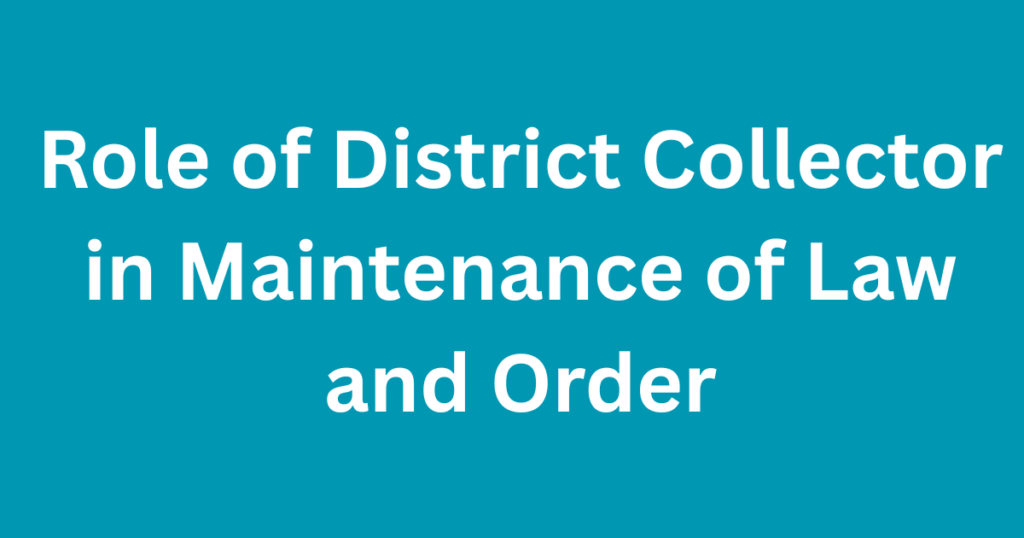The District Collector, also known as the District Magistrate in many parts of India, plays a crucial role in maintenance law and order in their district. They are not only responsible for the smooth running of government programs but also act as the chief authority for peace, safety, and public administration in their area.
Let’s understand how the District Collector ensures that the district remains peaceful and safe for all citizens.

Who is a District Collector?
A District Collector is a senior officer of the Indian Administrative Service (IAS). They are appointed by the government and are in charge of managing the overall administration of a district, which is a key administrative unit in India.
The same officer may also be called:
- District Magistrate (DM) – when focusing on law and order
- Deputy Commissioner (DC) – in some states with revenue-related powers
Key Role of the District Collector in Maintaining Law and Order
1. Supervision of Police and Coordination
Although the Superintendent of Police (SP) handles the police department, the District Collector works closely with the SP to ensure public safety. In situations of law and order problems like riots, strikes, or communal tension, the Collector and SP take joint action.
2. Crisis and Emergency Management
The District Collector takes charge during natural disasters, accidents, or public emergencies. They lead efforts to control the situation, provide relief, and restore order as quickly as possible.
3. Issuing Orders Under Section 144 CrPC
The Collector has the authority to impose Section 144 of the Criminal Procedure Code, which restricts gatherings and movement of people when peace is at risk. This is often used during protests, curfews, or communal tension. Also Read Hit and Run Law.
4. Handling Public Grievances
People approach the Collector for complaints regarding police inaction, disputes, or threats to peace. The Collector listens and takes appropriate action to solve these problems with the help of police or other authorities.
5. Maintaining Peace During Elections
During elections, the Collector ensures that the entire voting process is safe, fair, and peaceful. They manage crowd control, deploy security forces, and handle any law and order challenges that arise.
6. Licensing and Regulation of Arms
The District Collector issues and monitors arms licenses in the district. They have the authority to revoke a license if they believe it could disturb public peace.
7. Monitoring Public Events and Gatherings
Festivals, rallies, or public events can sometimes create law and order issues. The Collector coordinates with event organizers and police to make sure such events are conducted peacefully.
Real-Life Example
During a festival like Durga Puja or Eid, the District Collector ensures that:
- Processions follow safe routes.
- Police are deployed at sensitive spots.
- No hate speeches or unlawful acts are allowed.
If any problem arises, the Collector takes immediate action to control the situation and prevent escalation.
Conclusion
The role of the District Collector in maintaining law and order is both challenging and important. From managing protests to ensuring peace during festivals, their actions directly affect the safety and well-being of the public.
In short, the District Collector acts as a guardian of peace, ensuring that every citizen lives in a safe and orderly environment.

